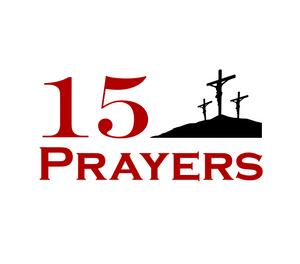
Book III
The external calamities of Rome.
Chapter 1
Of the ills which alone the wicked fear, and which the world continually suffered, even when
the gods were worshipped.Chapter 2
Whether the gods, whom the Greeks and Romans worshipped in common, were justified in permitting the destruction of Ilium.
Chapter 3
That the gods could not be offended by the adultery of Paris, this crime being so common
among themselves.Chapter 4
Of Varro’s opinion, that it is useful for men to feign themselves the offspring of the gods.
Chapter 5
That it is not credible that the gods should have punished the adultery of Paris, seeing they
showed no indignation at the adultery of the mother of Romulus.Chapter 6
That the gods exacted no penalty for the fratricidal act of Romulus.
Chapter 7
Of the destruction of Ilium by Fimbria, a lieutenant of Marius.
Chapter 8
Whether Rome ought to have been entrusted to the Trojan gods.
Chapter 9
Whether it is credible that the peace during the reign of Numa was brought about by the gods.
Chapter 10
Whether it was desirable that the Roman empire should be increased by such a furious
succession of wars, when it might have been quiet and safe by following in the peaceful ways of Numa.Chapter 11
Of the statue of Apollo at Cume, whose tears are supposed to have portended disaster to the
Greeks, whom the god was unable to succour.Chapter 12
That the Romans added a vast number of gods to those introduced by Numa, and that their
numbers helped them not at all.Chapter 13
By what right or agreement the Romans obtained their first wives.
Chapter 14
Of the wickedness of the war waged by the Romans against the Albans, and of the victories
won by the lust of power.Chapter 15
What manner of life and death the Roman kings had.
Chapter 16
Of the first Roman consuls, the one of whom drove the other from the country, and shortly
after perished at Rome by the hand of a wounded enemy, and so ended a career of unnatural murders.Chapter 17
Of the disasters which vexed the Roman republic after the inauguration of the consulship,
and of the non-intervention of the gods of Rome.Chapter 18
The disasters suffered by the Romans in the Punic wars, which were not mitigated by the
protection of the gods.Chapter 19
Of the calamity of the second Punic war, which consumed the strength of both parties.
Chapter 20
Of the destruction of the Saguntines, who received no help from the Roman gods, though
perishing on account of their fidelity to Rome.Chapter 21
Of the ingratitude of Rome to Scipio, its deliverer, and of its manners during the period which Sallust describes as the best.
Chapter 22
Of the edict of Mithridates, commanding that all Roman citizens found in Asia should be
slain.Chapter 23
Of the internal disasters which vexed the Roman republic, and followed a portentous
madness which seized all the domestic animals.Chapter 24
Of the civil dissension occasioned by the sedition of the Gracchi.
Chapter 25
Of the temple of Concord, which was erected by a decree of the senate on the scene of these
seditions and massacres.Chapter 26
Of the various kinds of wars which followed the building of the temple of Concord.
Chapter 27
Of the civil war between Marius and Sylla.
Chapter 28
Of the victory of Sylla, the avenger of the cruelties of Marius.
Chapter 29
A comparison of the disasters which Rome experienced during the Gothic and Gallic
invasions, with those occasioned by the authors of the civil wars.Chapter 30
Of the connection of the wars which with great severity and frequency followed one another
before the advent of Christ.Chapter 31
That it is effrontery to impute the present troubles to Christ and the prohibition of polytheistic worship, since even when the gods were worshipped such calamities befell the people.

